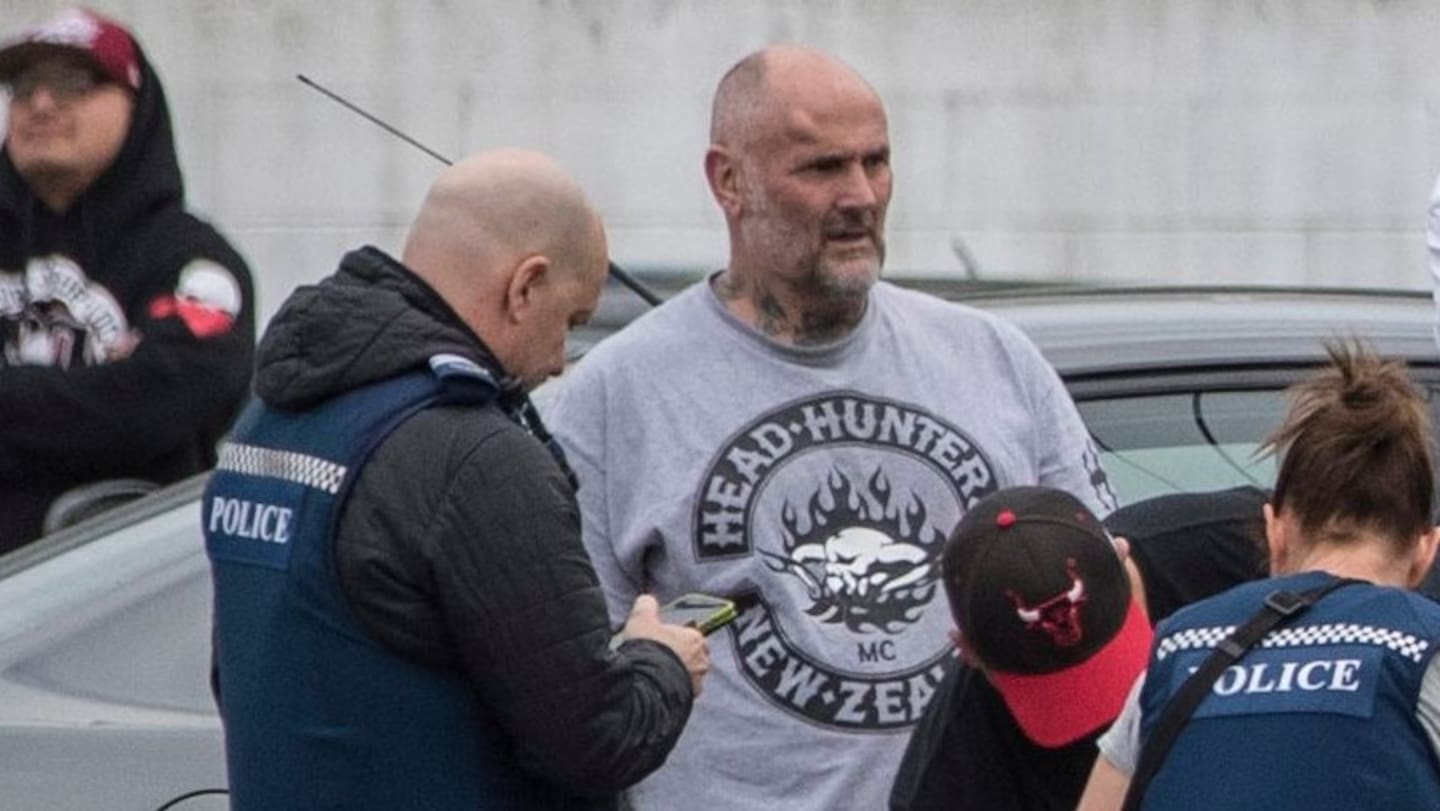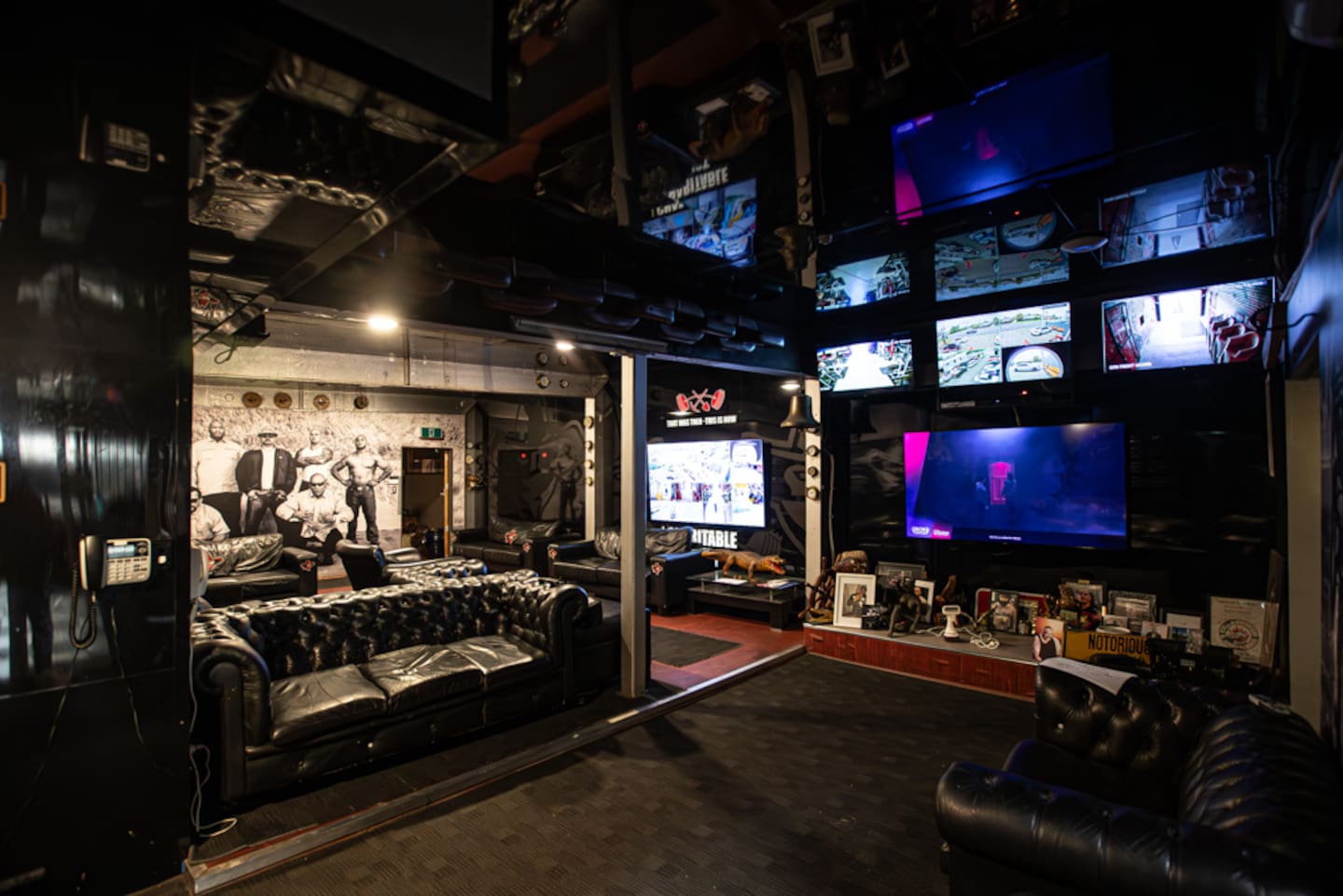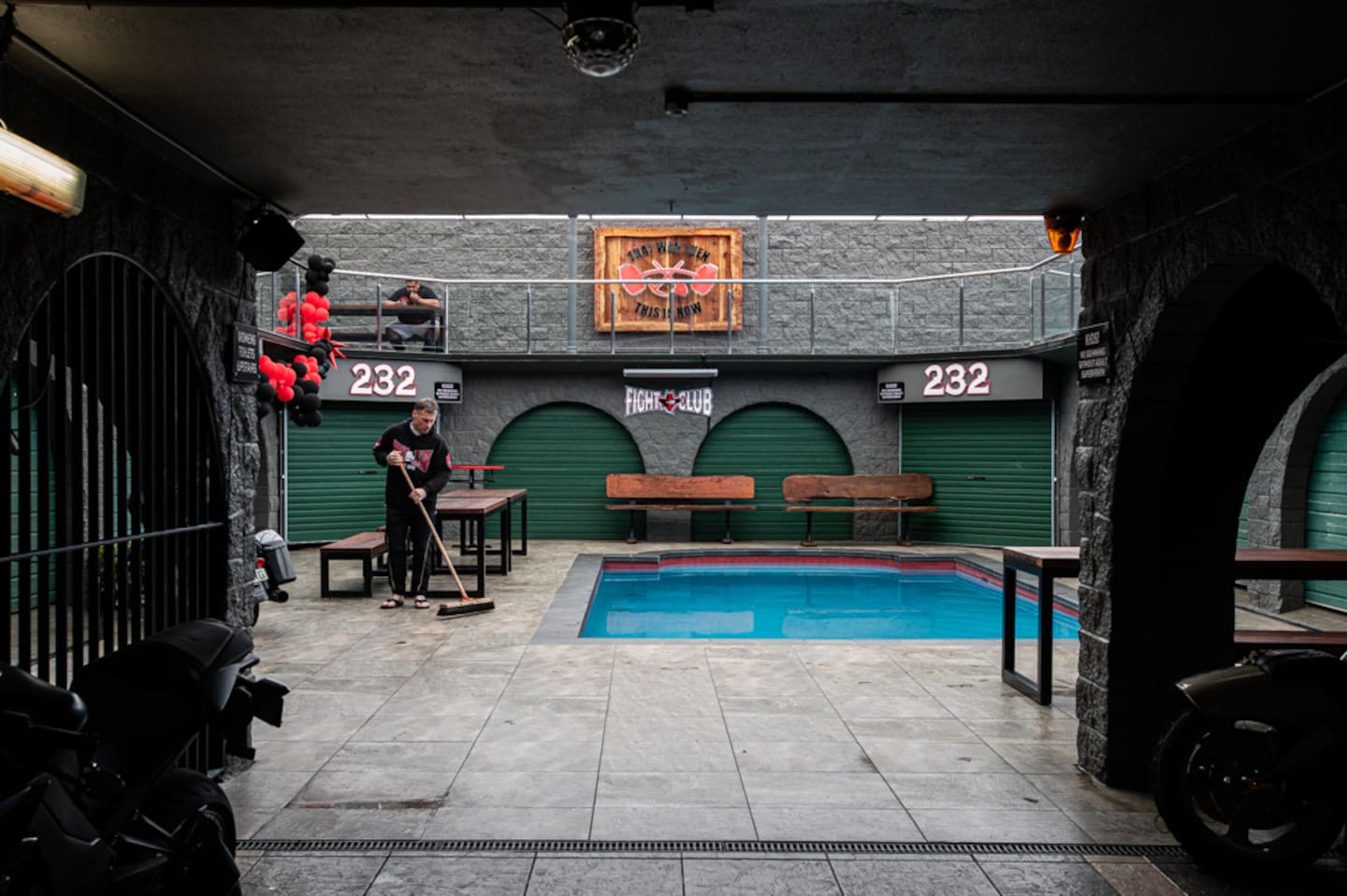A judge has ordered alleged Head Hunters boss Wayne Doyle and the gang to forfeit about $15 million of profits, covering the East Chapter’s prized pad in Marua Rd and several other properties.
The landmark ruling comes nearly a decade after police launched their effort to force Doyle and the Head Hunters to forfeit assets that police say were tainted with the gang’s ill-gotten gains, including drug money and cash from stand-overs and other crimes.
Justice Peter Andrew spent nearly 10 months deliberating after the conclusion of Doyle’s civil trial in the Auckland High Court in December last year.
His judgment, released today, grants the Commissioner of Police profit forfeiture orders amounting to just over $15m against Doyle.
Doyle’s lawyer Ron Mansfield KC told the Herald this morning he intended to appeal the orders.
It was not immediately clear at time of publication whether the appeal would result in any of the orders being stayed or suspended while any appeal is determined.
The judgment said the prized pad at 232 Marua Rd in Ellerslie is ordered to be disposed of to satisfy the profit forfeiture orders, along with four other properties the judge found were tainted with criminal proceeds and were controlled by Doyle.
Justice Andrew said the credit balance held in a bank by Head Hunters linked bank accounts, along with about $275,000 cash seized when police raided the Marua Rd pad, would also need to be disposed of to satisfy the orders.
In his judgment, Justice Andrew said a company called East 88 PHL is the registered owner of Marua Rd. Doyle is the sole director, principal shareholder and sole signatory to its bank accounts. Justice Andrew found his enduring control over the company meant Doyle had a “beneficial interest” in the company, and that a series of steps were undertaken to conceal his interest.
It is a landmark judgment because of the size of the orders, the prominent role of Doyle and the Head Hunters in New Zealand’s underworld over many decades, and chiefly because police did not need to use Doyle’s criminal convictions to secure the orders.

Wayne Doyle speaks to police at 232 Marua Rd as police raid the pad of the Head Hunters East chapter in 2017. Photo / Peter Meecham
Prosecutor Mark Harborow said in his closing address the fact Doyle has not been charged or convicted since 2001 or recalled to prison was no barrier to police efforts to force him to forfeit his wealth.
The Criminal Proceeds Recovery Act, passed in 2009, was designed to supplant earlier legislation which police found was unable to deal with people involved in crime who had succeeded in distancing themselves from offending.
Police only need to show someone profited from crime under the lower standard of proof used in civil cases - “on the balance of probabilities” - rather than the “beyond reasonable doubt” standard in criminal trials.
Doyle was not involved in a criminal sense in the methamphetamine dealing or standovers - dubbed “taxings” - by which members of the Head Hunters made money, Harborow said.
But he derived benefit from the offending via the 20 per cent koha that members of the Head Hunters are required to pay to the club, police alleged.
Those who profit from the proceeds of crime should be forced to pay each and every dollar of ill-gotten gains back to New Zealand society, Harborow said.

After the conclusion of Doyle's civil trial, the Head Hunters granted the Herald an exclusive look inside the pad police have now won an order to seize. Photo / Jason Dorday
Police targeted five properties linked to the pensioner and alleged gang boss, including the sprawling pad and gym at 232 Marua Rd, Ellerslie.
Doyle denied he was the president of the Head Hunters but Mansfield acknowledged he was a senior and longstanding member.
Mansfield has argued he had other sources of legitimate income beyond the benefits police say were insufficient to fund the five properties.
Since his release in 2001 Doyle had not been involved in any criminal offending, because to do so would have led to his recall to prison under the terms of his life parole, Mansfield said.
In his closing address, Harborow said the act heralded a new approach.
“We don’t care, says Parliament, whether he undertook or was involved in the crime,” Harborow said.
“What matters is the derivation of the benefit.
“If you’ve benefited from crime to say $12m you owe New Zealand society a $12m debt.”

A member sweeps the floor beside the pool inside Marua Rd. Photo / Jason Dorday
The act says a person has unlawfully benefited from crime if they knowingly, directly or indirectly, derive a benefit from criminal activity.
Harborow said the fact Doyle had managed to amass an interest in five properties across Auckland while spending much of his life either in prison or receiving benefits showed he was reaping the rewards of the activities of the Head Hunters.
“It’s extraordinary, we say, that Mr Doyle has managed to fund five pieces of real estate in Auckland while spending a large part of his life in prison and also receiving only benefits.”
Police have cited intercepted communications from historic drug investigations which they say show Doyle had knowledge of how Head Hunters members were earning their money and in one case purported to show him demanding a cut from the proceeds.
While he denies he is the boss, Doyle acknowledges he is a senior and longstanding member of the Head Hunters.
During about three days in the witness box he admitted that after police swooped on his properties in 2017 donations were forthcoming to help with his legal fees.
But he said donors were required to pay out of their bank accounts rather than with cash to ensure the money was from legitimate sources.

Head Hunters set off from their Ellerslie pad for the funeral of William Hines. Photo / Hayden Woodward
“His ability to command money from Head Hunters for his legal retainers is entirely consistent with our case, that he sits at the apex and is in receipt of large amounts of funds,” Harborow said.
Earlier in the trial, Harborow cross-examined Doyle on one of those payments, sent from Hong Kong to his former lawyer’s trust account.
Police traced the $72,000 back to a woman who lives in Auckland and whose partner is a convicted drug dealer, sentenced to prison for importing just shy of 1kg of methamphetamine. As a result, Harborow said, this was tainted money.
Mansfield, in his closing address, said there was a paucity of evidence that those funds made their way to Doyle or any of the relevant entities.
Those entities include the That Was Then, This is Now charitable trust, set up after Doyle’s release from prison with the aim of helping prisoners reintegrate into society, but which the police say is the Head Hunters in all but name.
George Block is an Auckland-based reporter with a focus on police, the courts, prisons and defence. He joined the Herald in 2022 and has previously worked at Stuff in Auckland and the Otago Daily Times in Dunedin.
Take your Radio, Podcasts and Music with you









